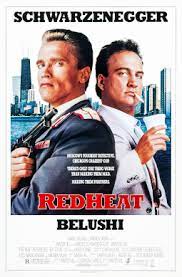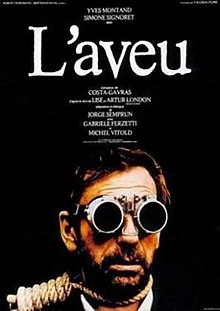Christopher Nolan loves his puzzles. With
Oppenheimer he turns his cinematic focus to one the most enigmatic figures of the 20th Century. Nolan ups the stakes with each of his films, pushing his circular narratives further outward. Perhaps
Tenet, which I liked a lot, took the
Memento approach to as far as it could go. Nolan broadens his canvas with
Oppenheimer, posing relevant questions about technology and the nature of humanity, a tale rooted in myth just as much as the past.
Oppenheimer is not the first film about the Manhattan Project, but it's the first to give the story an epic treatment with a big budget. Cillian Murphy starts as J. Robert Oppenheimer (1904-1967), the physicist who led the project and became the public face as the man who built the bomb. We see him as the 20th Century man, the scientific prodigy studying Picasso paintings, enthralled with quantum physics, exuding both eccentric and heroic qualities.
While he was a Professor at Berkeley during the 1930s, Oppenheimer was involved in leftist politics as many were during the Great Depression. He had an impassioned affair with Jean Tatlock (Florence Pugh), a young woman active in the communist party. The affair continued after his marriage to Kitty (Emily Blunt), the film only hints at the dynamics of their relationship. While Oppenheimer never became a "card carrying" member of the party, his loyalty would come under question years later. It's suggested part of the reason he was chosen to lead the project was to set him up to fail, the hinge on which the script turns.
The other main plot thread deals with the consequences of building the bomb and what it meant for the future of the world. Nolan, with the finesse of Brian De Palma, creates a sense of excitement and dread as time draws near to testing the weapon and the uncertainty of what would happen. By that point, Oppenheimer was more of a politician than a scientist, managing all the clashing egos. Edward Teller (Benny Safdie), the brilliant (but cold) Hungarian who pioneered the hydrogen bomb, is presented as an antagonist. Matt Damon especially stands out as General Leslie Groves who led the military side of the project and formed a complex partnership with Oppenheimer.
Oliver Stone's fever dream histories also appear to have influenced Nolan, specifically the dizzying editing style of JFK (and lots of shifting from color to black and white). Stone has fallen out of fashion in recent years, but his hypnotic approach to representing the past feels especially suited to this current time moment. Nolan's movies are all about the struggle between order and chaos, always in search of an answer to the puzzle that differentiates him from Stone (who revels in the uncertainty).
The search for order may attest to the strained last section of the film. Nolan shifts gears into procedural mode, trapping us the audience in a room with Oppenheimer and his inquisitors. In a battle of wills with head of the Atomic Energy Commission Lewis Strauss (Robert Downey Jr.) over the future of atomic power, Oppenheimer favored an international commission to regulate its use, which opened him up to questions about his loyalty. His credibility came under further strain when it was discovered there was a Soviet mole inside the Manhattan Project. He lost his security clearance and never regained his reputation.
At the heart of the film is not just the tragic nature of Oppenheimer - but of humanity itself. Unlocking the power of the atom presented unlimited possibilities for the future, but also the weaponization of the technology threatens that very future. We've all heard the arguments: if America hadn't built the bomb the Germans would've first. The use of atomic weapons against the Japanese people also remains divisive - as it should. Perhaps the most chilling scene is when Oppenheimer meets President Truman in the White House, the plain-spoken Missourian's casual attitude about bombing Japan borders on banal comic book villainy (matched by an earlier scene when an official vetoes bombing Kyoto because he visited the city during his honeymoon).
We later see Oppenheimer wincing when he views photos of the devastation from Hiroshima and Nagasaki. The implication is that he unconsciously decided to carry the burden of the suffering his creation wrought. A scene with Albert Einstein (Tom Conti) further reinforces the theme of responsibility, a fictional conversation in which Einstein blames Oppenheimer for dooming humanity. It's tempting to place martyrdom as a recurring motif in Nolan's filmography, but here we have the ultimate example.
A three-hour historical epic that's not a franchise movie becoming a smash hit in 2023 is surprised me. I doubt modern filmgoers go to movies for the director, yet well told stories still carry weight. Even though Oppenheimer is set in the past, it often looks and feels like a Sci-Fi film. There are many stories to be told about 20th Century science, politics, and technology and Oppenheimer sets up a template of a new type of blockbuster.
****









